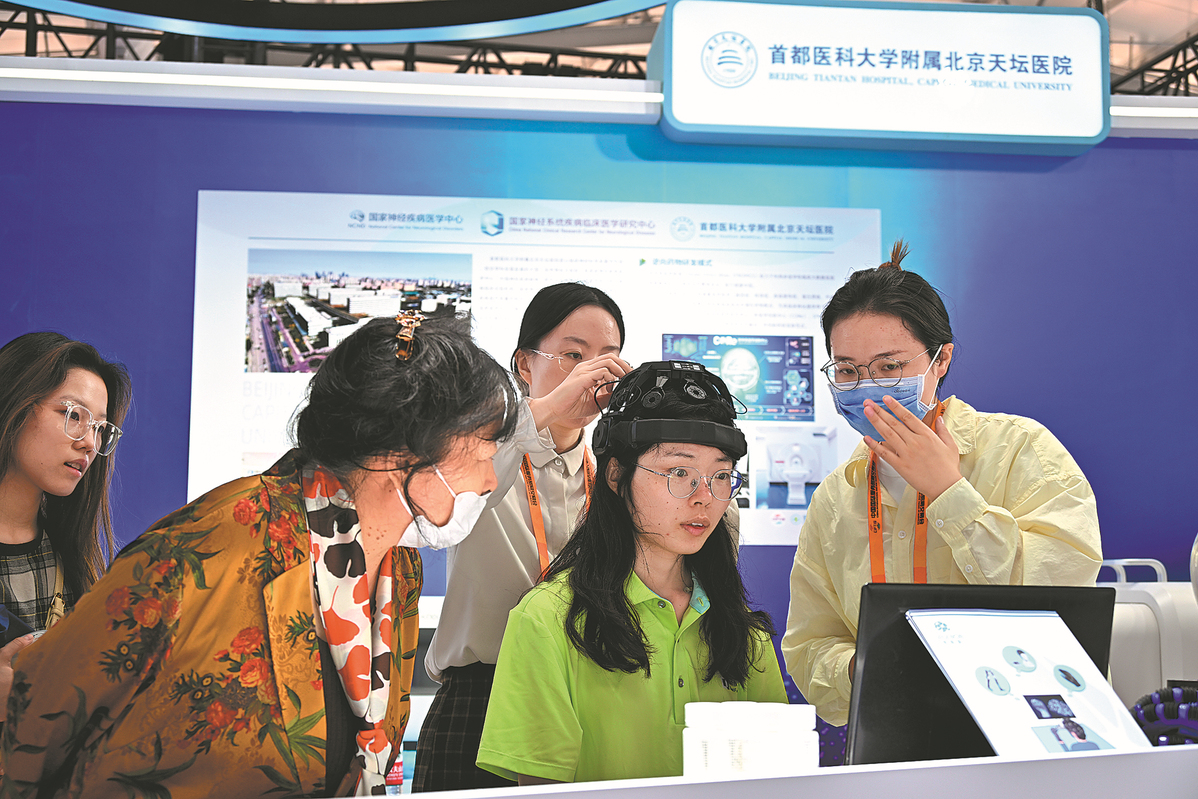Brain-machine integration spawns global biz race
China, US seek lead in emerging industry with Chinese firms wresting early edge


Zhao, however, also admitted, "There is still a certain way to go for BCI's large-scale application in the country, and future research will be conducted on device stability and functionality."
Gao from Tsinghua University said: "The current Chinese market is dominated by noninvasive BCI companies, accounting for more than 85 percent, involving education, entertainment and other industries, while invasive brain-computer interface devices are mainly in the medical industry. The US counterparts are more advanced in invasive ones."
In invasive BCI, the sensors are implanted inside the brain in order to increase the information that is being extracted. In contrast, noninvasive BCI is relatively safer and easy to implement but has limited capacity in replacing or enhancing the lost bodily functions, Gao said.
Earlier this year, preeminent entrepreneur Elon Musk said his firm Neuralink had implanted a device in a human for the first time, with the patient recovering well and showing promising neuron spike detection, which sent ripples through the industry.
The move followed Neuralink's announcement in May last year that the US Food and Drug Administration had given the green light to the world's first in-human clinical trial — a huge step forward in BCI development.
But the way forward and the race to the future have to be tempered with caution, said He Jianghong, a renowned expert in neurosurgery at Beijing Tiantan Hospital. Safety issues should be given special attention during the BCI technology's development, he said.
"Attention should be paid to track whether a BCI device can be safely put into operation and become compatible for a long time, and whether it will cause direct damage such as infections, bleeding or other problems to users.
"Also, once this technology is widely applied, it will inevitably collect data like a large number of human brain signals, thus potentially raising privacy concerns."
So, it is important that China and other countries should address ethical issues and take precautions so that the BCI industry can develop in a healthy way, He said.
chengyu@chinadaily.com.cn


















